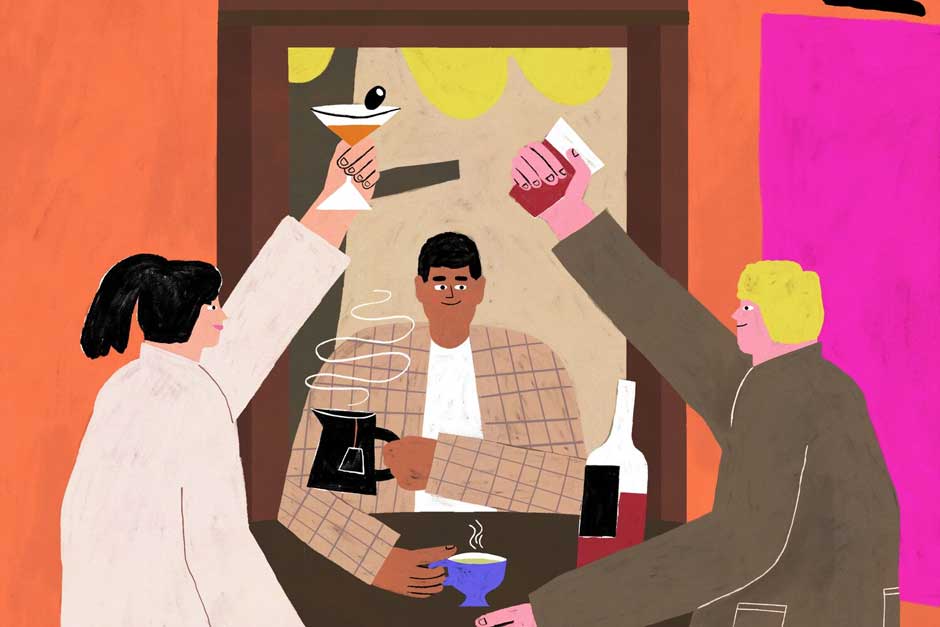Beyond the Break Room: How Smart Leaders Unwind Without Logging Off Their Brains

In high-pressure environments where every decision matters, visionary leaders are constantly seeking ways to sharpen their mental agility without burning out. And while mindfulness apps and guided meditations have earned their spot in the corporate wellness toolkit, there’s a surprising player quietly making a comeback: strategic board games.
These aren’t the dusty relics of rainy-day recess; they’re dynamic, immersive tools that help professionals exercise critical thinking, pattern recognition, and risk analysis in an engaging, low-stakes environment. For leaders who prefer to keep their minds sharp even during downtime, a good game might be the most underestimated productivity hack on the table.
The Case for Cognitive Recreation
Modern leadership doesn’t reward mindless relaxation. Instead, it leans into what psychologists call “active rest”: activities that restore energy while still engaging the brain. Strategic games hit that sweet spot.
Playing games like chess, Go, or strategic board games that challenge the mind helps leaders practice foresight, adaptability, and mental endurance. These same traits translate directly into boardroom success-only here, the only real consequence of failure is needing a rematch.
Even more social games, like Mahjong or Settlers of Catan, offer a blend of tactical decision-making and collaborative thinking. When played with team members, they encourage healthy communication patterns and offer insights into interpersonal dynamics, without the usual corporate guardrails.
Strategic games also support individual resilience. They train players to tolerate uncertainty, make decisions under pressure, and bounce back from loss-critical emotional skills for any executive navigating unpredictable markets or shifting workplace dynamics.
Why Strategy Still Matters Off the Clock
Time away from work isn’t just about stepping back-it’s about stepping forward with clarity. When leaders spend that time-solving non-work-related puzzles, they strengthen the neural pathways that support better work-related decisions.
Games rooted in strategy offer:
- Delayed gratification: Waiting for the right move teaches patience.
- Multistep planning: Thinking ahead becomes second nature.
- Calculated risk-taking: Leaders learn to balance boldness with restraint.
These are the same muscles required for mergers, pivots, and daily decision-making.
Neuroscientific studies have shown that structured play can enhance executive function, improve memory retention, and even mitigate stress. Strategic games, then, aren’t just entertainment-they’re a cognitive investment.
Building Smarter Break Culture
Encouraging strategic play in the workplace can help normalize breaks that restore without disengaging. Rather than passive scrolling or open-ended coffee breaks, consider:
- Hosting a monthly strategy game hour
- Starting a weekly challenge leaderboard (virtual or in-person)
- Including a game table in your break room stocked with options for different timeframes (10-minute vs. 60-minute games)
This isn’t about replacing rest, it’s about elevating it.
Additionally, encouraging interdepartmental game sessions can foster cross-functional rapport. When people from different areas of the organization play together, they develop trust, understand communication styles, and build empathy factors that naturally spill over into collaboration and innovation at work.
From Tiles to Tactics: Lessons from Traditional Games
Many of the world’s oldest strategy games are rooted in culture, history, and ritual. Mahjong, for instance, has evolved far beyond its origins into a globally loved pastime. With layers of rules and nuanced symbolism, it’s more than just entertainment-it’s a lesson in focus, memory, and spatial awareness.
The beauty of games like Mahjong lies in their multi-sensory appeal. The tactile feel of the tiles, the rhythm of play, and the reliance on visual and auditory cues create a full-brain experience that few digital diversions can replicate. This makes them particularly effective for decompressing while staying mentally engaged.
Today’s high-functioning leaders are increasingly turning to time-tested practices to manage modern stress. Games like Mahjong offer a tactile, analog break from the digital world, allowing the mind to reset while still engaging in structured thinking.
For leaders who travel frequently or work across time zones, portable board games can also become part of a self-care ritual, providing a consistent way to recharge and recalibrate.
Making Strategy a Habit
For those who find joy in tactical challenges, incorporating strategic play into regular routines can be a game-changer. Just like scheduling workouts or journaling sessions, setting aside time for intentional play can lead to long-term cognitive benefits. Whether it’s a Saturday night game with friends, a weekly family Mahjong match, or a solo puzzle session, consistency matters.
Gamified thinking doesn’t just help leaders decompress; it trains their brains to think in systems, recognize patterns, and develop adaptability. Over time, even short sessions of gameplay can improve spatial reasoning, emotional regulation, and the ability to make decisions under pressure.
Some companies have even begun integrating play-based assessments into team development or hiring practices. These scenarios reveal how people make decisions, handle failure, collaborate, and negotiate, all in a stress-free environment that still mirrors real-world challenges. It’s proof that how someone plays often reflects how they lead.
Final Thoughts
In an age where burnout is a badge of honor and “always on” is the default, the most innovative leaders are choosing something different. They’re turning to strategic play-not as an escape, but as an extension of their leadership mindset.
Imaginative recreation isn’t frivolous. It’s fuel. The more effectively we engage our minds during rest, the more impactful we become during work.
So next time you see a game on the breakroom table, don’t dismiss it as downtime filler. It might just be the most brilliant move in your leadership playbook.


